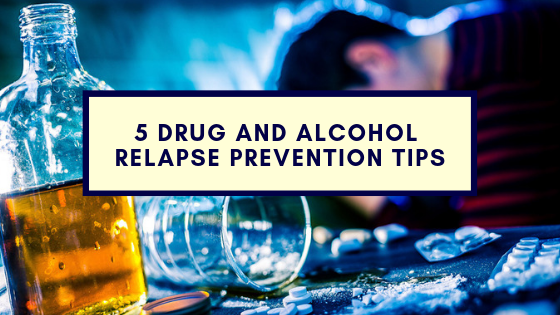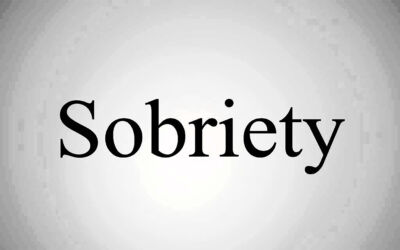It’s hard to overcome drug and alcohol addiction. Most substance abusers will end up relapsing even if they get the treatment that they need. In fact, 40% to 60% of drug and alcohol abusers will relapse within one year even after completing a drug and alcohol addiction treatment program. This shows that achieving lifelong sobriety is not an easy task.
Coming up with a solid drug and alcohol relapse prevention plan can help you increase your chances at succeeding. Let’s take a look at some 5 tips and tricks that you should now below.
#1. Get Support from Peers, Family and Friends
Many recovering addicts relapse because they feel alone. They feel that other people don’t understand what they’re going through, and feel that the world is working against them.
Studies show that peer support plays a critical role in addiction recovery. Recovering alcohol and drug users will be more likely to succeed if they get the support that they need from those around them. This includes getting support from others in similar situations from recovery meetings or getting support from family and friends.
#2. Learn More About Your Own Personal Triggers
Many people can get easily triggered by their environment. Triggers are anything that may remind a recovering addict what it feels like to do drugs or to drink. These feelings may cause the user to crave various substances. They may also cause them to relapse in certain situations. Be aware of what your triggers are and avoid them at all costs.
Some common triggers include:
- HALT: Hunger, Anger, Loneliness and Tiredness
- Warning signs of stress, like a stressful day at work
- Being near people that you use to share or take drugs with
- Being in an environment where you used to do drugs or drink
- Peer pressure from friends or family
Anything that reminds you of drugs is a trigger. To avoid triggers, many opioid users will check into an inpatient opioid rehab. This way, they can control their environment while they recover.
#3. Stay Motivated By Going to Recovery Meetings
Going to recovery meetings and support groups not only ensure that recovering addicts get the support that they need, but they also ensure that these individuals will stay motivated. Those who go to support groups regularly will review their motivations for sobriety on a daily basis. They’ll also acquire the skills needed to cope with cravings and post-acute withdrawal symptoms.
#4. Take Care of Yourself Physically
Learn how to take care of yourself physically. This includes making sure that you have enough sleep, staying hydrated, eating well and getting enough exercise. These activities will help boost natural neurochemical levels to help you stay in better spirits during recovery. This will help you avoid relapsing.
#5. Heal Mentally
Last but not least, learn how to heal mentally. Many addicts struggle with co-occurring disorders. This means that they struggle with a mental health disorder while they struggle with an alcohol or drug addiction. There are many ways to heal mentally. Some options include:
- Learning how to relax and cope with cravings using various recovery tools
- Practicing yoga and other relaxation techniques to enhance self-awareness
- Learning how to let go of things, situations and people that cause you stress
- Being grateful for what you have in life and saying thank you to those around you
- Making sure that you have enough personal time and aren’t cramming everything into your day
Mental health is just as important as physical health, especially when it comes to addiction recovery. Many recovering addicts will start to learn that the underlying causes behind the addiction is often poor mental health.
Seek Professional Help from an Addiction Treatment Center
An effective addiction treatment center will make sure that you have a solid drug and alcohol relapse prevention plan before you leave. They will make sure that you know what you need to not only get clean, but also to stay sober for the remainder of your life. You can change your life with the right type of help!




